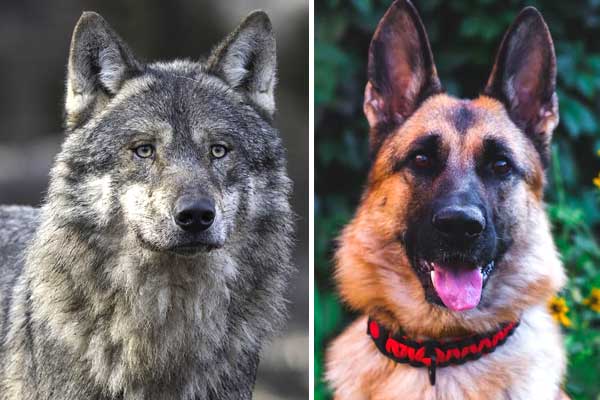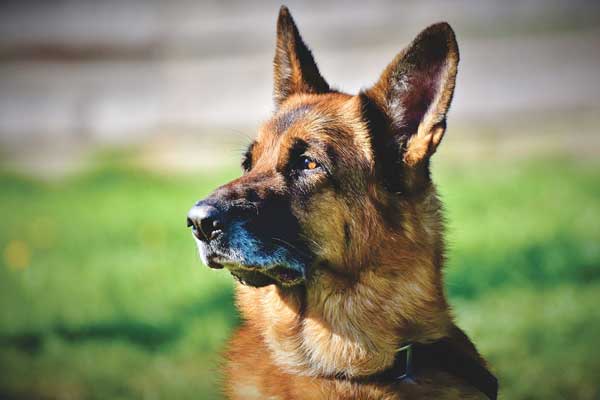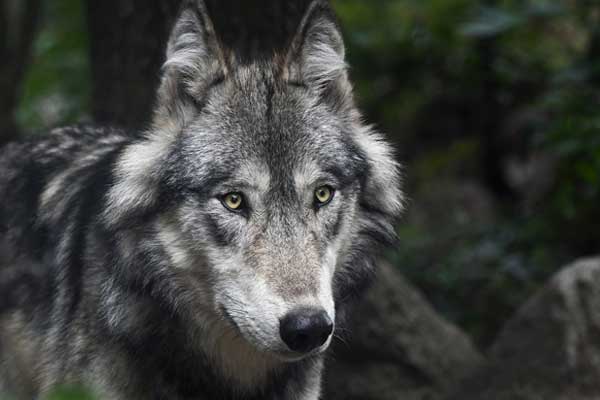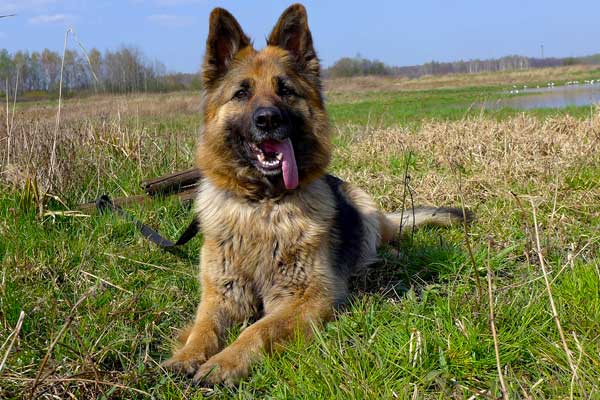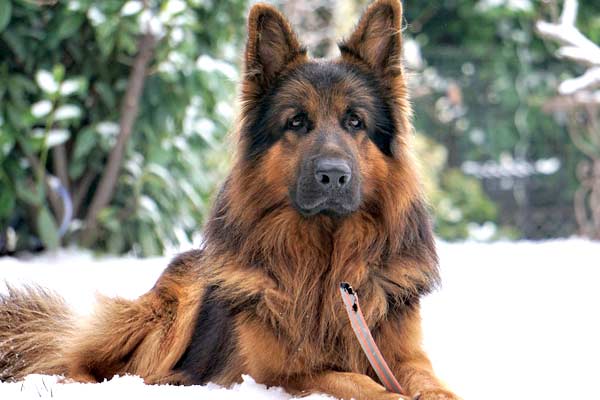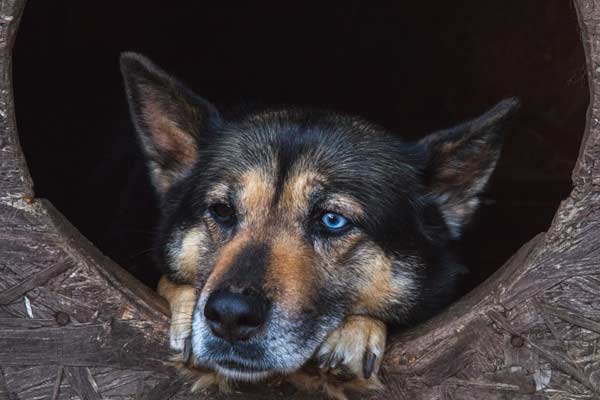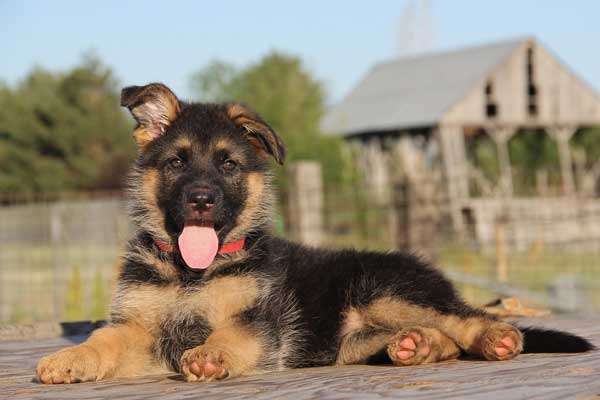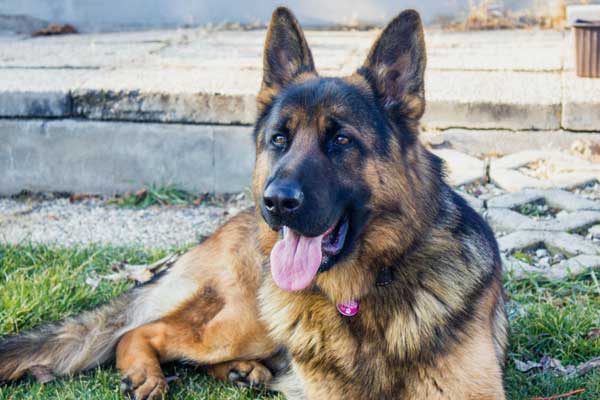Are German Shepherds Closely Related to Wolves? Howl You Know
Are German Shepherds closely related to Wolves? This is a question that many dog lovers have asked, and it has puzzled pet owners for centuries.
Both German Shepherds and Wolves have similar physical characteristics, and they both have a deep and powerful howl. But just how closely are they related?
In this blog, we’ll explore the history and origin of the German Shepherd and dive into whether they have wolf genetics.
We’ll also look at the differences between German Shepherds and Wolves and explore the possibility of a German Shepherd beating a wolf in a fight.
Finally, we’ll discuss the difference between wolfdogs and wolf hybrids and determine which dog breeds are closest to wolves.
Are German Shepherds Closely Related to Wolves?
The first question many pet owners have is whether or not German Shepherds are closely related to wolves.
The answer to this question could be more straightforward. While the German Shepherd does not have the same genetic makeup as a wolf, it does have some wolf DNA in its genetic makeup.
It’s important to note that wolves and German Shepherds aren’t closely related in a genetic sense, but they share some commonalities.
Both wolves and German Shepherds have similar physical characteristics, such as a strong jaw and a thick coat. They are also both brilliant animals.
However, German Shepherds are the result of careful breeding by humans. They were initially bred to be working dogs and selectively bred to be loyal, intelligent, and hard-working. So while they may share some common physical characteristics with wolves, they are not closely related in a genetic sense.
German Shepherd History
The German Shepherd has been a relatively new dog breed since the late 19th century. The breed was developed in Germany by a man named Max von Stephanitz, who wanted to create a breed of dog that was intelligent, loyal, and hard-working.
Von Stephanitz’s vision for the breed was to create a dog that could be used for various tasks, from herding sheep to guarding property.
German Shepherds have the intelligence, strength, and loyalty of a wolf but with the calm, obedient nature of a domesticated dog.
Today, German Shepherds are one of the most popular dog breeds known for their loyalty, intelligence, and strength and are used for various tasks, from search and rescue missions to serving as police dogs.
Do German Shepherds Have Wolf Genetics?
German Shepherds are descendants of the gray wolf, sharing 99.9% of their genetic material.
Despite this close evolutionary relationship, they are very distinct from wolves in physical and behavioral traits.
German Shepherds and wolves possess 78 chromosomes shared with coyotes, allowing them to interbreed and produce viable offspring. This similarity in the chromosome structure also provides for communication between both species.
German Shepherds may growl, howl, and whine like wolves, but they don’t possess the same predatory instinct as their wild ancestors.
They may still respond to wolf-like behavior from other dogs or humans, but it’s important to remember that despite their common ancestor, German Shepherds are not wolves.
Differences between German Shepherds and Wolves
German Shepherds are a domesticated breed considerably smaller than their wild counterparts, the wolves.
On average, a wolf stands between 26-32 inches tall, weighing between 80 and 180 lbs, while German Shepherds are much smaller in stature, with female dogs standing at 22-24 inches tall and males measuring 24-26 inches.
They are also considerably lighter, with females weighing between 50-70lbs and males 60-85lbs.
Although different in size, the wolf and German Shepherd has the same number of adult teeth – 42!
However, their jaw strength is quite different – wolves can bite up to 1000 PSI, whereas a German Shepherd tops out at 238 PSI. And if you’re looking for speed, wolves can run up to 37 mph, while a German Shepherd tops at 29.8 mph.
It’s clear that despite their physical differences, the wolf and German Shepherd have something in common: they both eat meat!
But when it comes to friendliness, there’s no comparison – German Shepherds have a reputation for loving and loyal to humans. At the same time, wolves are wild animals that don’t seek out or show affection toward people.
Can a German Shepherd Beat a Wolf
The short answer is no. German Shepherds are powerful and impressive animals, but when it comes to a fight with a wolf, they stand no chance.
Wolves are far more intimidating creatures, with larger frames and longer canines that give them an edge in physical altercations.
Sharp claws on their paws further increase the danger of wolves, whereas German Shepherds may not possess such weaponry.
Given the power imbalance, if you find yourself face-to-face with a wolf, your best action is to retreat and call for help rather than fight it off.
It’s doubtful that even the strongest German Shepherd could take down a wild animal like a wolf, and the potential risk to you and your dog is too great.
Stay safe out there – no German Shepherd can stand up to a wild wolf!
Can a German Shepherd Breed with a Wolf
Yes, a German Shepherd can breed with a wolf; German shepherds and wolves are members of the same species, Canis lupus, which means they can produce fertile offspring when interbred.
Although wolfdog hybrids can occur naturally in the wild, this is extremely rare due to the territorial nature of wolves because both species are interfertile, meaning their union produces viable reproductive cells.
So, for those looking for a unique canine companion that combines the best traits of both species, it’s usually best to find breeders specializing in wolfdog hybrids instead. The result? A German Shepherd Wolf Mix.
Difference Between Wolfdog and Wolf Hybrids
A wolfdog is a canine that has been bred from either two wolfdogs or a wolfdog and a dog, while a wolf hybrid is a result of crossbreeding between a purebred wolf, usually bred in captivity, and either a dog or wolfdog.
Wolf hybrids may possess some of the physical characteristics of both species, as they share similar genes.
Different from the former, this is a less common occurrence. To keep both types separate and prevent crossbreeding attempts, owners should monitor their proximity and be alert for signs of aggression if they come into contact.
Asking an animal behavior expert is likely the safest choice when mating between two animals.
Why Does My German Shepherd Howl Like a Wolf?
German Shepherds are known to howl like a wolf, which is a behavior that stems from their ancient lineage.
They can typically be heard howling any time of day or night, as they often express themselves through this vocalization.
Howling can help German Shepherds define their territory and communicate with other dogs.
It’sA German Shepherd will likely howl in response to other dogs, sirens, music, or even the sound of their voice.
Regardless of the reason, if your German Shepherd is doing something that seems like howling, chances are it’s just them expressing themselves and embracing their inner wolf!
28 Dog Breeds Closest to Wolves
If you’re looking for a dog breed that is closest to wolves, then you may want to consider breeds such as:
- Czechoslovakian Wolfdog
- Siberian Husky
- Alaskan Malamute
- Saarloos Wolfdog
- Samoyed
- Northern Inuit Dog
- Utonagan
- Canadian Eskimo dog
- Swedish Vallhund
- Shiba Inu
- Akita
- Chow Chow
- Shikoku
- Afghan Hound
- Shih Tzu
- Basenji
- Lhasa Apso
- Greenland Dog
- Alaskan Klee Kai
- Norwegian Elkhound
- Tibetan Terrier
- Shar Pei
- Pekingese
- Belgian Tervuren
- Greenland Dog
- Alaskan Klee Kai
- Shiloh Shepherd
- Yakutian Laika

